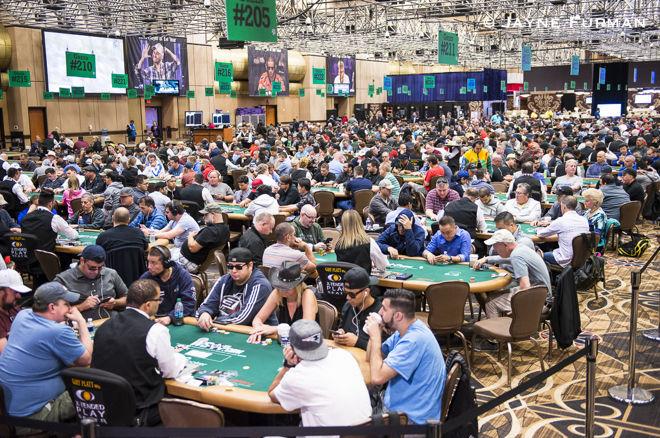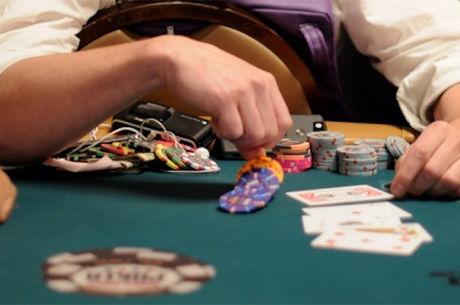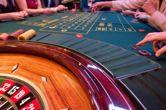WSOP 2018: 5 Reasons Winning Players Lose at the World Series of Poker

The 2018 World Series of Poker will be here sooner than you think, with the first bracelet events starting May 30 �� check out the full schedule here.
You're a "home game hero" who has come to Las Vegas during the World Series of Poker to prove you've got what it takes. But here's the thing. If you're testing yourself in one of the bracelet events, you're bucking the odds to finish in the money. Even if you only come out to play in the cash games, you might find yourself at a disadvantage.
To help you anticipate some of the potential challenges you'll face this summer, I've listed below five reasons why those who consider themselves winning poker players elsewhere might find it a bit more difficult to count on winning in Las Vegas.
1. Statistically, you're supposed to lose
For the sake of argument, let's assume you really are better than the average player. In fact, let's say you're twice as good as the average player. Even those playing at that level do very well to cash as much as 20 percent of the time in tournaments.
That means, of course, you're going to bust out with nothing 80 percent of the time. You're not going to see any payday at all (on average) four times for every one time you cash. And as far as making any serious score is concerned (making a final table or actually winning), that's an even more elusive goal to reach.
In fact, your odds of winning are probably worse than I'm calculating, for a few reasons. First, if you're like most poker players, you're overestimating your skills. Second, you're probably underestimating the experience and skill level of those who tend to make it to the money. While you might be better than the average entrant, are you better than the entrant who typically makes it to the money? Are you better, on average, than the player who devotes his or her career to playing tournaments, as many do at the World Series of Poker?
As the duffers and weekend warriors bust out because of their inferior skills, the field that remains in competition for the money and for the big money at the final table becomes more and more saturated with the best players �� players who will tend to have more experience and more skill at these long-format tournaments than you. Which is just another way of emphasizing that even if you're good, the odds are against you scoring big in a WSOP tournament.
2. You're playing better players
Let's say you're not playing in the bracelet events, that you're only playing cash. Even so, you're not doing very well and you're wondering why. One reason may be that (again) you're likely to be up against better players than you're used to playing.
If you're like a lot of players coming out for the WSOP, you're heading to the poker rooms you've heard about, the ones that you've heard are the "best." But what does that mean? It means you're probably heading to the Aria, Wynn, Bellagio, or the Venetian. Guess what? That's where the best players go. That's where the biggest games are. That's where the richest players play.
And that's where most of the best tourists head when they come to Las Vegas. So you're there, too. You'll be up against the best players there, probably a better quality of player than you're used to playing at home.
Since the best regulars are playing against you, is it any wonder you may not be having as easy a time of it as you had in your hometown room, where you're against players you've learned how to beat?
3. Your opponents have an advantage over you
It's not just that the players you're up against may be more skilled and may have considerably more experience in the game in which you're playing. There's also the fact that they since many are regulars and not tourists like you, they have many advantages. I covered some of these advantages in my last column, but let's review.
They are under no time pressure. You are, out for a short stay when you're trying to get in some poker action. They live nearby and can incorporate their poker play into their regular lives. That's not the case for you, either.
By nature of the fact that they are at home, they are more comfortable, better rested, more familiar with the opposition, and maybe even more likely to gain advantages you aren't even aware exist. For instance, they know the styles of others around the table. They know who is extremely aggressive (and intentionally sit to the left of such players), they know who the rocks are whose bets should always be respected, and so on.
You, as an outsider, know none of these things, and so may more easily fall prey to pitfalls the regular can avoid.
4. You're not at your best
If you're honest with yourself, you know this to be true. At home you play when you want, get as much rest as you want, eat the diet with which you're most comfortable, and have no reason to drink or eat to excess. You get in whatever exercise or relaxation outside of poker you want to get, and you can play with complete attention and focus.
In Las Vegas, after a long flight, you may not be well rested. With the temptations of Sin City all around you �� something you're not used to �� you may be staying up late, sleeping poorly, eating poorly or too much, drinking more than you are accustomed to, and doing all sorts of things that may have a negative affect on your game.
5. You're more interested in action than optimal strategy
If you're like most players who fly in for the WSOP, your eagerness to play is probably working against you. You're probably not as selective in the game you're playing as you would be back home. And even if you are selective, since you don't know the regulars here like you do at home, you really don't have enough information to find the best seat in the best game as you are able to do in your hometown poker room.
Similarly, unless you are unusually patient for a WSOP tourist, you are probably torpedoing your best game because you are more eager than normal for action. So you're gambling more, sacrificing patience in the interest of "playing." Who can blame you? You probably only come out to Las Vegas infrequently, and you want to make the most of your short stay.
Conclusion
I admit that I may be too hard on some of the home game heroes who come out to the WSOP. After all, many who do may be well aware of these potential disadvantages, may have dealt with them, and may have taken countermeasures.
For those of you who have not done so, try to anticipate the obstacles outlined above. Also, I will have an article in the near future sharing steps you can take to avoid the problems of being a tourist in Las Vegas, as well as things you can do to make your temporary engagement in the WSOP poker scene work to your advantage.
Ashley Adams has been playing poker for 50 years and writing about it since 2000. He is the author of hundreds of articles and two books, Winning 7-Card Stud (Kensington 2003) and Winning No-Limit Hold'em (Lighthouse 2012). He is also the host of poker radio show House of Cards. See www.houseofcardsradio.com for broadcast times, stations, and podcasts.
In this Series
- 1 WSOP 2018: 5 Reasons Winning Players Lose at the World Series of Poker
- 2 WSOP 2018: Five Different Day Trips From Las Vegas
- 3 WSOP 2018: 7 Cheap Shots at Glory Around Las Vegas
- 4 WSOP 2018: Protect Your Bankroll, Avoid These Five Poker Tourist Traps
- 5 WSOP 2018: 5 Places to Play Poker Around Las Vegas You Might Not Know
- 6 WSOP 2018: How to Live it Up Without Risking it All in Las Vegas
- 7 WSOP 2018: Saving Enough in Las Vegas for a WSOP Tournament Buy-In
- 8 WSOP 2018: What to Bring to the World Series of Poker - A Checklist
- 9 WSOP 2018: Eight Excellent Poker Rooms in Vegas Other Than the Rio









